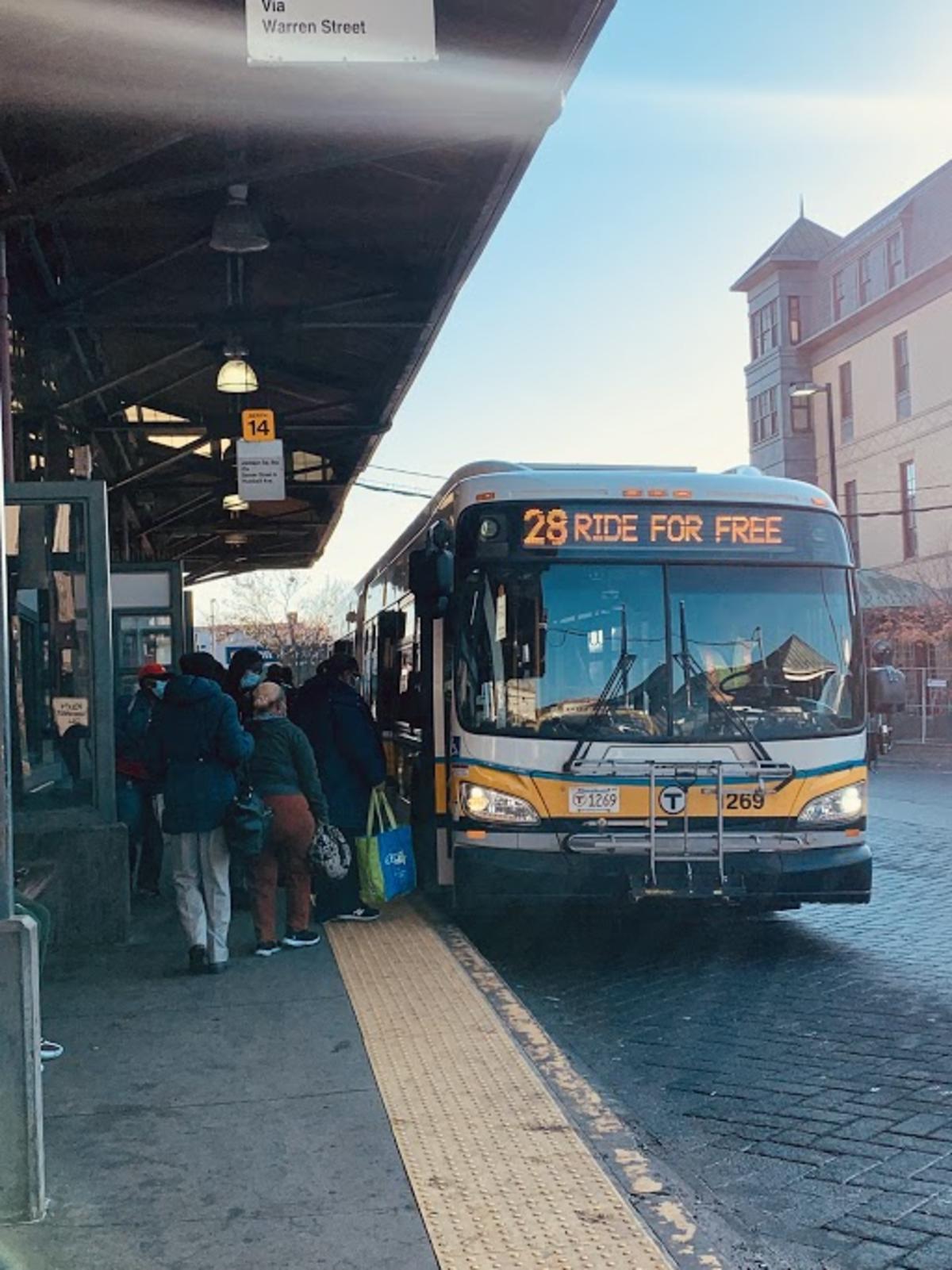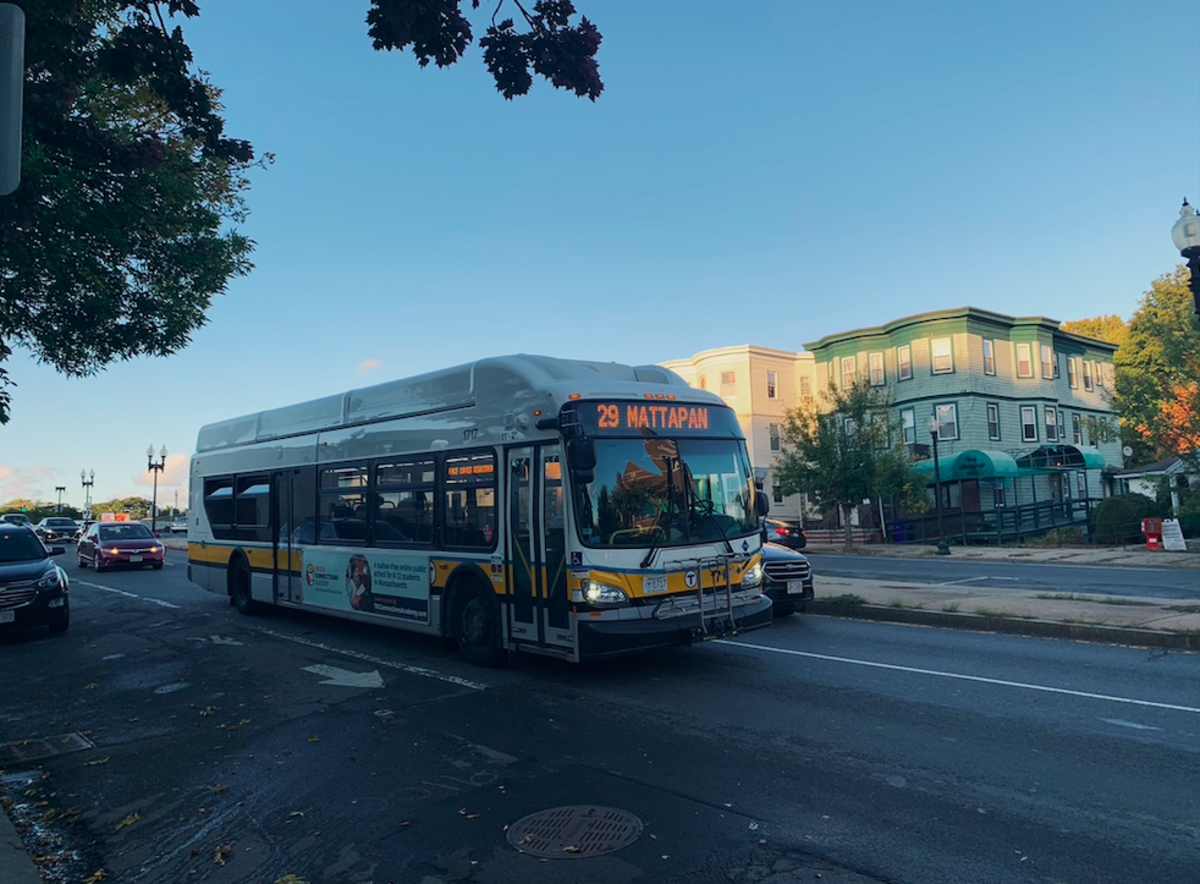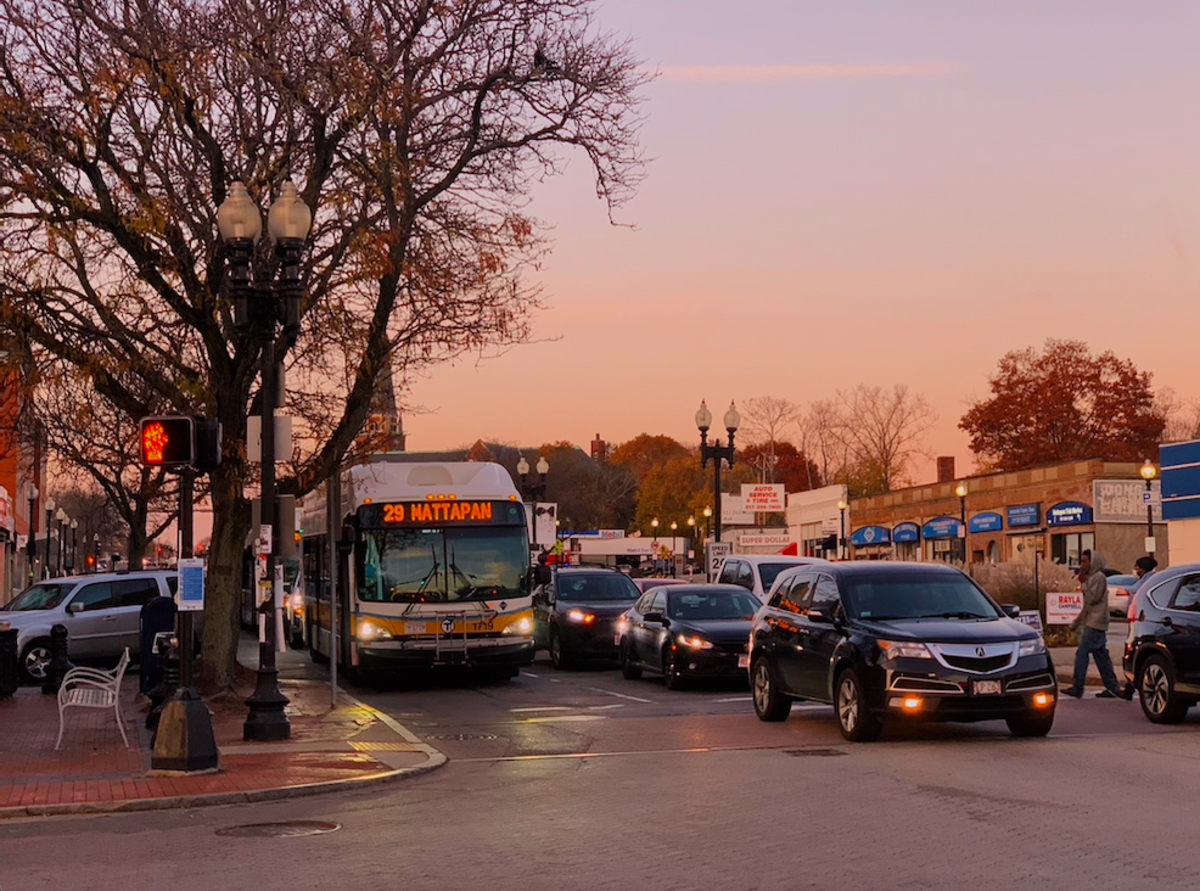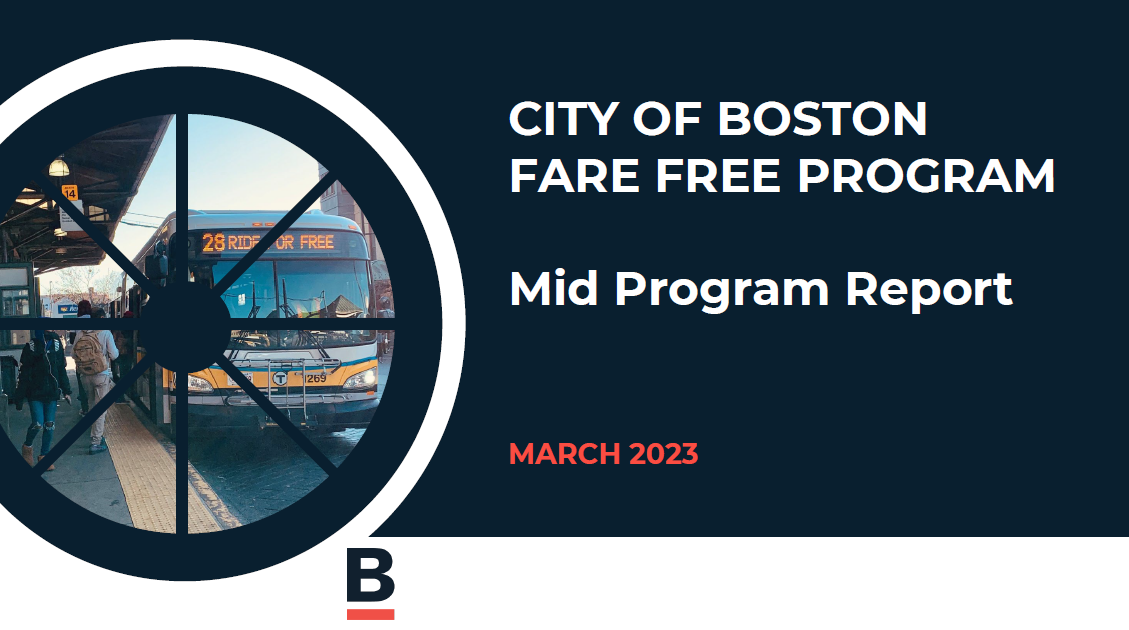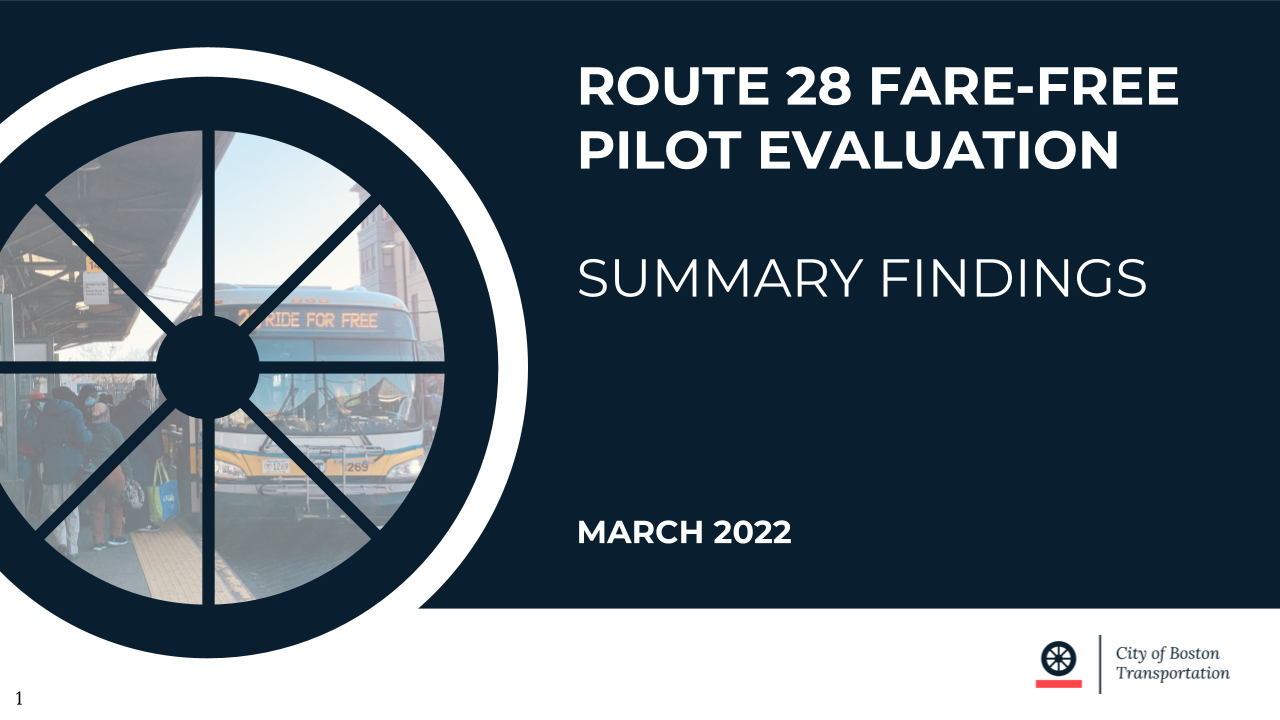Free Route 23, 28, and 29 Bus Program
MBTA bus routes 23, 28, and 29 are fare-free through March 2026.
Overview
Route 23, 28, and 29 bus riders are able to board at all doors without paying a fare.
From March 1, 2022 through February 28, 2026, MBTA Routes 23, 28, and 29 will be free for all riders. The RIDE paratransit users can also ride for free as long as their trips start and end within 3/4-mile of these three routes. The free fares will help riders save money, and all-door boarding will help passengers board faster. This program expands the highly-popular fare-free Route 28 pilot, adding two other crucial bus routes.
The communities Routes 23, 28, and 29 serve are key to Boston's equitable reopening and recovery.
Bus Routes Map
View a map of the bus routes involved in this program, as well as some of the community hubs along the way!
Why are we doing this?
Why are we doing this?
Essential travel connection
The Route 23, 28, and 29 buses are key connectors for many Boston residents, connecting residents of:
- Mattapan
- Roxbury, and
- Dorchester
- to the broader MBTA network.
Many residents in this area rely on daily bus service to meet their travel needs.

High Ridership Bus Corridors
These three routes run along some of the highest ridership bus corridors in the City of Boston. After fares were eliminated in August 2021, Route 28, which runs from Mattapan Square along Blue Hill Avenue and then over to Ruggles, became the most popular route in the MBTA bus system. Route 23 serves over 100,000 monthly riders, running from Ashmont along Washington Street over to Warren Street, and continuing to Ruggles by way of Nubian Square. Route 29 runs from Mattapan Square along Blue Hill Avenue before traversing the City's new center-running bus lane along Columbus Avenue, from Franklin Park to Jackson Square.

Public Transit as a Public Good
Over half of riders on Routes 23, 28, and 29 are classified as low-income, according to MBTA’s most recent systemwide survey. The free fares will lessen riders’ financial burden at a time when economic vulnerability is at a historic high. We want to enable Route 23, 28, and 29 riders to more easily participate in Boston's reopening, recovery, and long-term renewal.
Common questions
How can I use this program?
Simply board the 23, 28, or 29 bus from either the front or back doors! No need to tap your card or fiddle with cash.
Who is paying for all this?
In December 2021, the Boston City Council voted to approve Mayor Wu’s appropriation order for $8 million in federal funds to eliminate fares on the 23, 28 and 29 MBTA bus routes for two years. The City of Boston will use these funds to reimburse the MBTA for lost fares on these routes. In February 2024, Mayor Wu announced the City will continue to use American Rescue Plan Act (ARPA) funding to reimburse the MBTA for an additional two years. The City will use $350,000 per month in ARPA funding for the extension of the program.
Do I need my CharlieCard?
If you're only riding the 23, 28, and 29, no! You will still need some form of payment if you will be riding other MBTA services.
Who can take advantage of this?
Anyone can participate in this program!
Can I transfer onto other lines or services for free?
Unfortunately, no. Only the 23, 28, and 29 buses will be free during this time. Any other MBTA services will still require payment.
Do I still need to buy my monthly pass?
If you're only using the 23, 28, and 29, you will not need a monthly pass while the program is in effect.
Does this program include The RIDE paratransit service?
Yes! As long as your trip starts and ends within 3/4-mile of routes 23, 28, or 29, your paratransit trip is free. MBTA staff should be able to tell you whether your trip is free when you schedule it with them.
Program goals
Rider equity
Provide a direct benefit to many of Boston’s transit-critical residents
Economic impact
Provide monetary support to some of Boston’s most economically disadvantaged residents and businesses
Ridership
Bring people back to transit, and make it easier to attract new riders
Rider experience
Improve rider experience and satisfaction on these bus routes
Environmental impact
Reduce greenhouse gas emissions and improve air quality
Travel time impacts
Improve travel times and reliability on routes that frequently run behind schedule
Evaluation Reports
This report looks at how the first year of the expanded fare free bus program on routes 23, 28, and 29 performed against the City's goals. In summary:
- Ridership on the fare free routes is increasing at a greater rate than the overall bus system
- Travel times on the routes remained constant despite the influx of riders
- 26% of riders saved more than $20 a month, and are using their savings to purchase food, save towards long-term goals and build emergency funds
- Some riders are now choosing to take the bus rather than drive, which could reduce congestion and greenhouse gas emissions
- Most riders on the fare free routes are transit-critical
This report looks at how the initial Route 28 free-fare pilot performed against the City's goals. In summary:
- Free fares increased ridership substantially
- Dwell times per passenger decreased by about 20%
- Route 28 absorbed a significant ridership increase with minimal negative impact on travel times
- Route 28 riders liked the easier boarding process, and overall satisfaction improved
- About 20% of riders saved more than $20 a month
- The majority of Route 28 pilot riders were transit-critical
Learn More
Please direct any questions or comments here!
Want to learn more? Read more about this pilot on the MBTA website!
Learn more about our process for engaging residents about transportation on Blue Hill Avenue
Learn more about the Route 23 bus!
Learn more about the Route 28 bus!
Learn more about the Route 29 bus!
Read the press release in English.
Read the press release in Spanish.
Read the press release in Haitian Creole.

